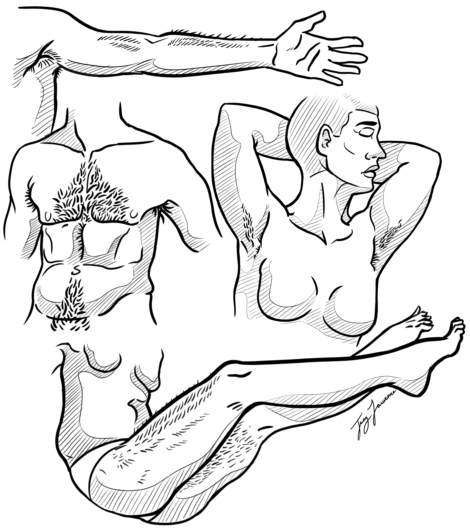“How do you stay so skinny?”
Questions like this never fail to make me squirm. I typically just laugh in response and give an answer along the lines of “I just watch what I eat,” before frantically trying to change the subject. But as someone with a history of disordered eating and body image problems, questions like this always spark a series of complex emotions.
For one, I’m uncomfortable. Since I’m constantly hyper-attentive of my body, an acknowledgment of it by someone else only further exacerbates my awareness of my insecurities. But intermingled with this discomfort is a strange sense of satisfaction. After all, if somebody else thinks I’m skinny then, in my mind, I’m accomplishing my goal.
Some people say that the hardest part of losing weight is keeping it off. I disagree. Really, what’s even harder is the dysmorphic mentality you can develop. Unfortunately, body image issues are much harder to shed than pounds. No matter how I look, there’s always a little nagging voice in the back of my head that says my appearance is never enough.
My issues with body image and disordered eating began early in my childhood. My family came from a poor background, so food was regarded mainly as a means of sustenance. As they didn’t have an abundance of food growing up themselves, they ensured that I was well-fed and satiated well beyond necessity.
Being force fed to a point of discomfort — and otherwise shamed if I didn’t finish — became the framework for the negative relationship that I have with food today. I never saw food as something to enjoy, but rather as a kind of necessary evil. After puberty, eating in excess began to have noticeable effects on my body. I didn’t have the metabolism of a child anymore, so my body began to change. What followed were years of fluctuating weight and, consequently, a damaged self-image. No matter how big or small I was, I was never satisfied. This distorted sense of self was exacerbated ironically by constant scrutiny from my critical Chinese family. This only further reinforced to me that food was the enemy.

TROY LAWRENCE/THE VARSITY
Although I have grown quite comfortable with my body and have learned to cope with many of these negative thoughts, summer is always a rough period of time for my body image. With every invitation to the beach I get on Facebook, those feelings of insecurity return with full force. There’s no hiding behind hoodies and sweatpants like in the cooler months — you’re put on full display.
At this time of year, I once again become hyper-vigilant of how I look. Some days, stepping out in shorts can be an incredibly inhibiting experience, as my mind swells up with obsessive thoughts every time I notice a stranger remotely glance over. Other days, I might feel a bit better, but I still have a constant fear that every extra calorie I eat will drastically change how I look.
While these negative modes of thinking still impact my life today, I have come a long way. A few years ago, these thoughts would literally cause me to cancel plans out of fear of being seen on days that I felt particularly insecure. Taking a step out of my door when my mind tells me I’m too fat or too ugly to do so is, quite frankly, incredibly nerve-racking each time. But forcing myself to do it by opposing those negative thoughts — even if it takes an hour for me to find an outfit that I feel even remotely comfortable in — has helped me begin to reclaim some of the power.
Tattoos have helped me better understand my insecurities. Although getting tattoos cannot wholly mend a distorted relationship that one has with their body, getting them has helped reframe how I understand myself and how I relate to my physicality.
Those glances from strangers that had previously made me incredibly insecure are now something that I embrace. No longer are my skinny arms the centre of attention, but rather, the tattoos that adorn them are. Putting something that I view as beautiful on a part of me that I once hated was liberating. Although I would previously actively attempt to obscure those parts of my body, I now unashamedly flaunt the tattoos and the body parts that they’re one with.
Despite how rampant my insecurities about my body get in the summertime, I’ve learned to find ways to cope and have taken back some sense of control over my relationship with my body. While it’s still in constant flux and deviates from day to day, my tattoos provide me with a sense of much-needed stability and grounding. My body and my perception of it will continually change; but my tattoos are a constant that never fail to bring a smile to my face, even during bouts of my worst insecurities.


